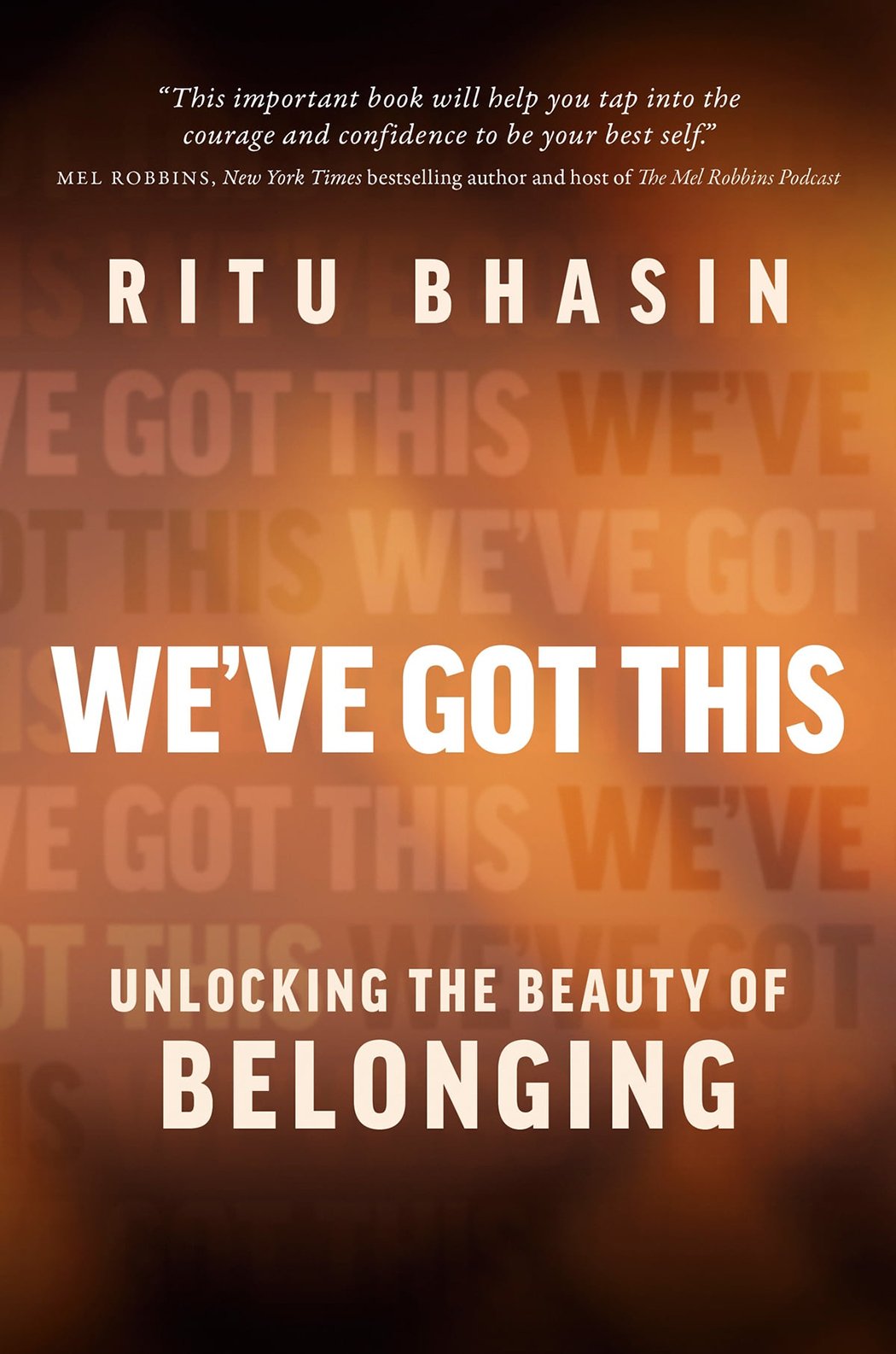A ROOM WITH A POINT OF VIEW
HAVE YOU EVER FELT INVISIBLE IN A ROOM?
Ritu Bhasin.
By SHAGORIKA EASWAR
Have you ever felt invisible in a room? In a gathering of colleagues or acquaintances, where people don’t acknowledge your presence or talk around you? While you stand there, a smile pasted on your face, pretending all is well?
Ritu Bhasin knows what it is to feel like that, and she came up with strategies that helped her. She’s now sharing those with others who identify with that feeling.
We’ve Got This is a memoir which would be equally at home in the self-help section in bookstores.
To truly belong in a space, any space, she writes, one must be true to one’s core self. And her tips for developing that core wisdom include things that you might not have considered. Among them:
• Call out the harmful, hateful things that happen to you.
• Raise your hand for opportunities.
Also:
• Be at peace with being a mishmash of identities.
• Get people to pronounce your name correctly.
• Practise your faith openly and proudly.
• Wear whatever you want.
• Use your native tongue at every opportunity, including in public.
“Belonging is the profound feeling of being accepted and honoured for who you are, specially for what makes you different,” she writes. “Belonging and authenticity are inextricably intertwined.”
Bhasin, a lawyer and MBA, is an award-winning speaker and author and the founder of a diversity, equity and inclusion (DEI) consulting firm. In this, her second book, she opens up about bullying she experienced as the child of Sikh immigrant parents, as well as the pressure to fit in by masking her authentic self.
Even after finding professional success as a Bay Street lawyer, she felt she’d become a “well-dressed, charming-on-the-outside, miserable-on-the-inside, parents-pleasing, single-and-lonely, exhausted-from-working, high-paid zombie”.
About the many Ritus that jostled for space within her. Corporate Ritu, Sassy, thick-skinned Ritu, Party girl Ritu, Funny pants Ritu, Sweet, soft Ritu... and how, after years of “curating” her image, she felt profoundly disconnected from herself.
“Our life stories begin with our elders’ life stories. I say elders because it wasn’t just our parents who raised us.”
And yet, knowing this, and fully cognizant of her parents’ struggles, she distanced herself from them.
Because the understanding that trauma begets trauma and that “hurt people hurt people” came only later. “The fact that when we look back at how we were raised, we can experience a whole gamut of emotions from love and gratitude to guilt, fury and regret.”
She cut her hair, “dyed it a frightening orange-ish for a year. And even worse, at times I alternated between and wearing green and blue contact lenses, which with the orange-ish hair, was quite the sight to behold”.
She took on the role of Bhenji or elder sister, not only for her siblings, but also for her parents, feeling protective towards her father as he sat in his red turban at a school gathering. While at the same time “embarrassed and angry” that her parents were “brown, long-haired, thick-accented immigrants”.
Things come to such a pass that she ended up staying at a friend’s place for a few weeks when she was kicked out of the house by her parents. In her loneliness and despair, she admits to feeling suicidal.
It must hurt to reveal that side of the ideal, high-achieving putri (daughter) that she was, and Bhasin is frank about the fact that it does.
“But it’s the truth of how I felt, so I must honour it.”
Echoing what many others have said before her, that the physical body reacts to racism and being excluded, Bhasin writes that she has struggled with tummy issues, restless sleep, inflamed skin, back and neck pain, and diminished mental health.
Decolonization moment: It’s pronounced Sickh, not Seek.
Bhasin describes what happens when we embrace our roots (though she confesses to not considering Isabgol as a cure for her tummy issues until a non-desi friend extolled the virtues of psyllium husk!).
Ritu Bhasin is frank and fearless as she shares how she went from being someone who was struck speechless in a confrontation – but would come up with an “Oscar-winning rebuttal” later – to someone who can look everyone in the eyes and hold her own.
We no longer avert our eyes.
We rise.
We belong.
We’ve Got This is brave, outspoken, gut-wrenching, and also funny. It is packed with insights, tips and steps that readers can take to help achieve their own true selves.
It is, after all, a book that she hopes will make her mother happy.
Lastly, I want to share a vision I keep having: I’m picturing Mama Bhasin holding this book in one hand while she pumps her other fist in the air and yells, ‘My daughter, the motivational speaker!’”
We’ve Got This by Ritu Bhasin is published by Random House, $32.95.


